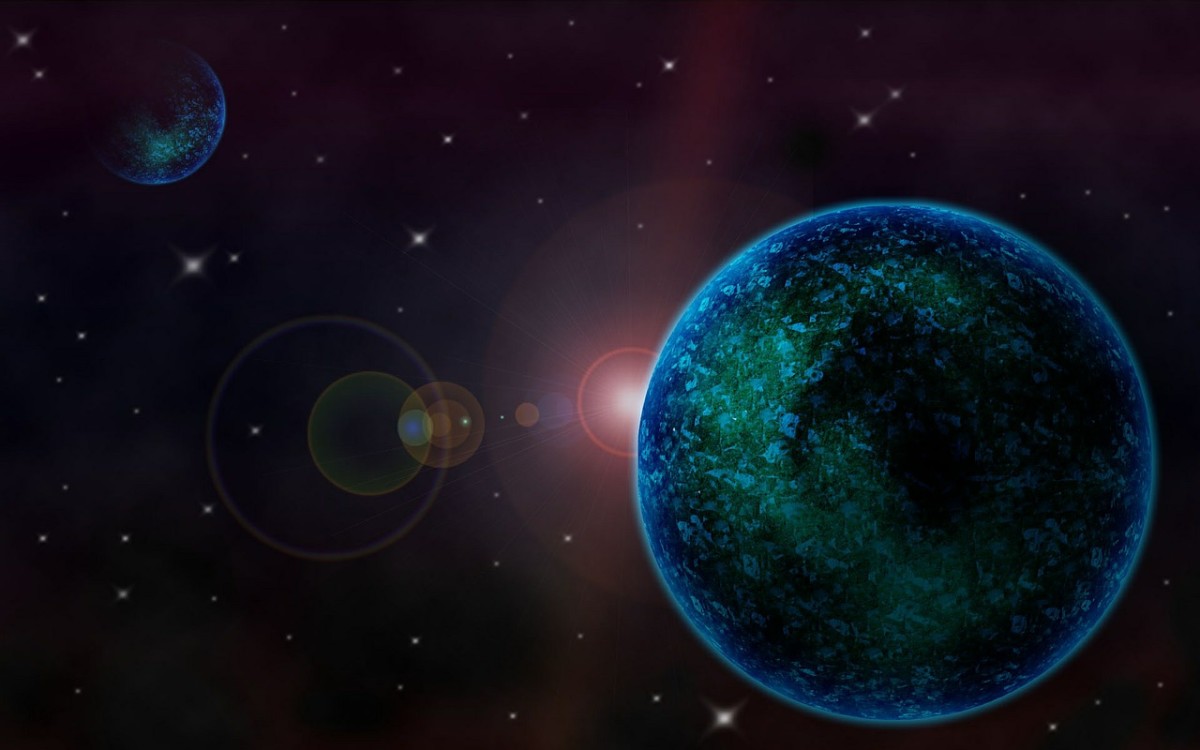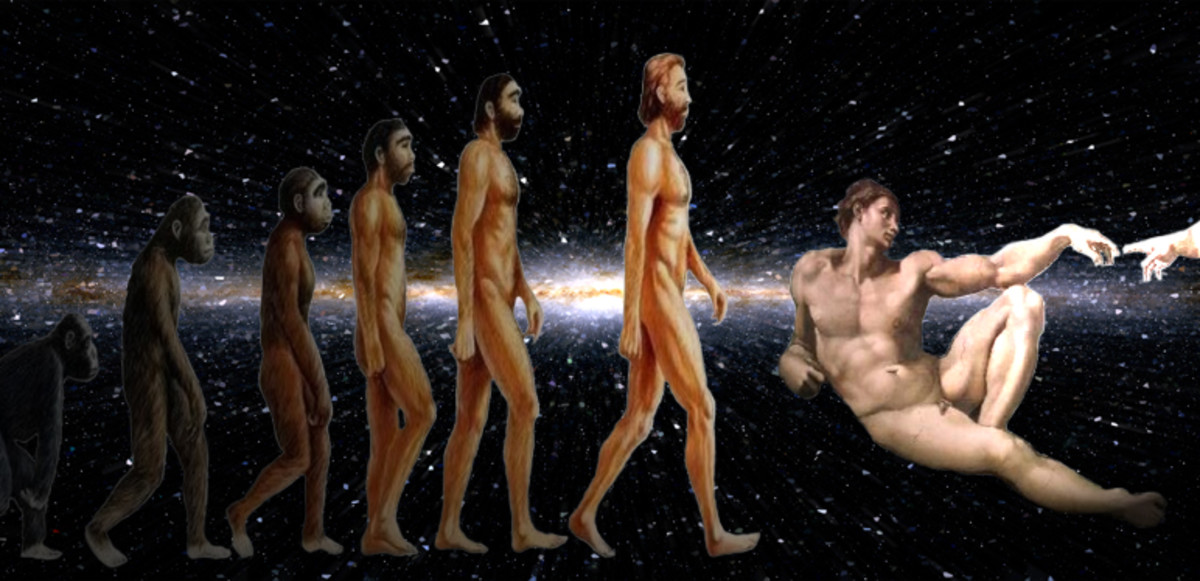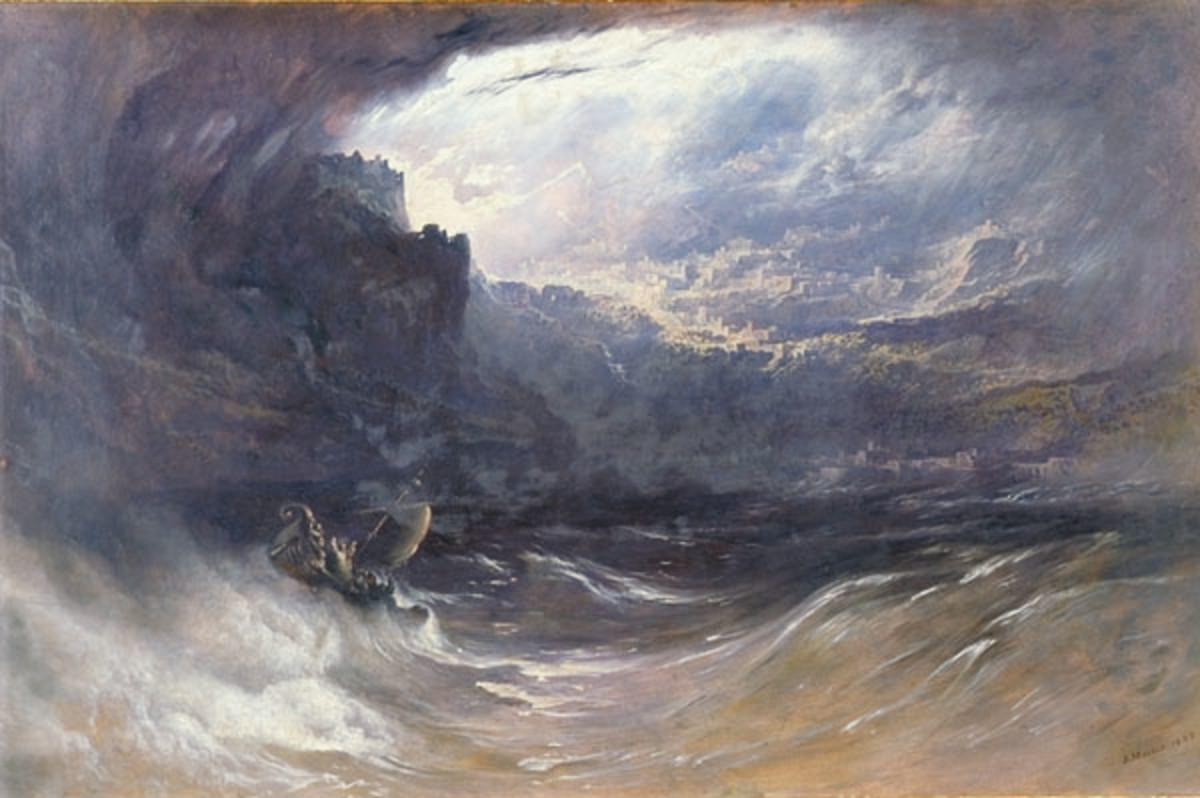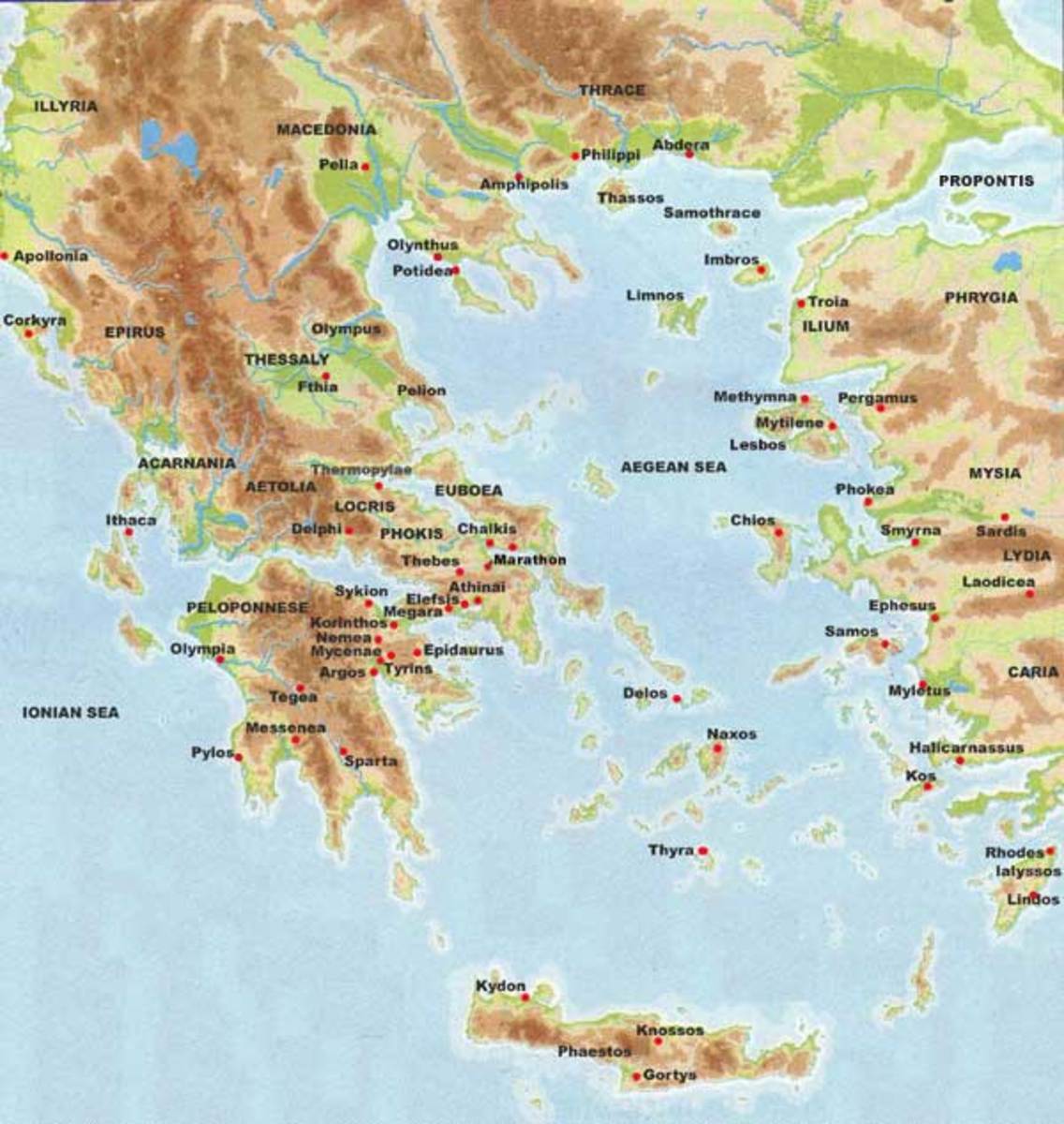Literary Origins: The Epic of Gilgamesh and the Genesis Flood Account in the Bible
How Could Gilgamesh have the same Flood Story as in Genesis?
Perhaps one of the oldest pieces of writing known on earth, the Epic of Gilgamesh has found itself in a peculiar predicament over the last few thousand years. According to Sumerian tradition, the Epic of Gilgamesh is based upon the life of a very early ruler of the city state of Uruk, the Biblical Erech. Though evidence of anything at that time in Sumerian culture is meager and indirect, the evidence we do have seems to indicate Gilgamesh lived in the twenty-seventh B.C.E.[1] The best evidence, for example, is nothing more than a name carved into a stone that records the lineage of ancient Sumerian Kings. More than this, however, we know nothing of the actual man who was Gilgamesh.
[1] This information is taken from the introduction to the David Ferry translation of the epic written by Professor William J. Moran, Emeritus, Harvard University, an expert in the field.
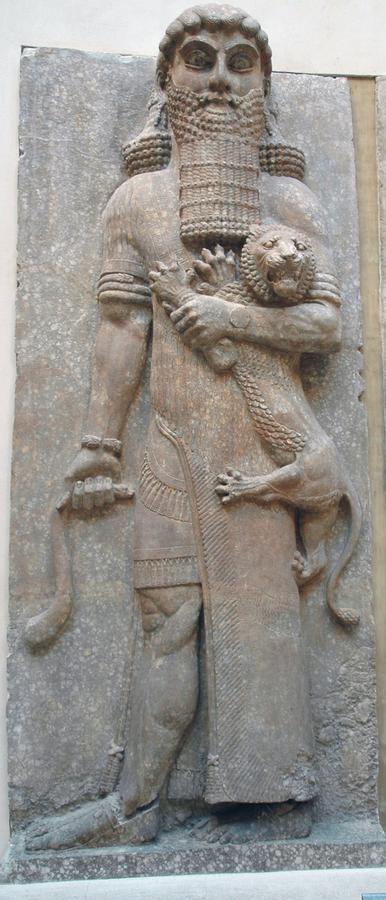
Why, then, has this obscure Sumerian Noble come under such heat for the last two-thousand years? The answer lies within his tale. The story of Gilgamesh, it seems, is problematic for Biblical scholars because it contains an almost identical version of the Flood story. The answer to what was written first is different depending on who you talk to. Suffice it to say, those who believe in Biblical authority have felt that the tale of Gilgamesh threatened how people might see the Bible as the word of God. On the other hand, Gilgamesh has made a great weapon when misused in the hands of people who have an agenda with attacking the Bible that doesn’t seem to do Gilgamesh any respect either.
What then, is one to believe about this problematic story? If it does predate the oldest copies of Genesis, does that even really pose a threat for people who accept the Bible as absolutely true in every part? I’m not sure it does based on my conversations with these people. This article, however, is concerned with presenting a fair and balanced discussion of the works in question so that a thoughtful person might arrive at their own conclusions because they are informed about the issues at hand. It is my belief that passing along beliefs in dogmatic slogans discourages the process of critical thinking. No matter what you believe about the Epic of Gilgamesh, it offers you an opportunity to see yourself from the outside of your normal way of thinking. These opportunities are, as the poem says, the road less taken. So, with the goal of more informed opinions, let’s compare these two works.
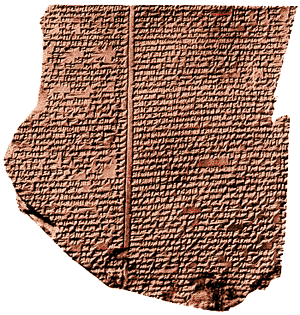
The stories of Gilgamesh and Genesis are, at the same time, both similar and unique. One concentrates on the adventures of a Half-Man/Half-God King named Gilgamesh on an epic journey to understand mortality, while the other focuses on recording the histories of the earliest human beings as it was understood by the ancient Israelites. Both are written in their own unique style, Gilgamesh in poetic couplets that focus on elements of story, a sign it evolved from an oral tradition of storytelling. Genesis, on the other hand, was carefully written and preserved by Jewish priests whose religious zealousness was reflected in the meticulous detail and facts they recorded and preserved in their Holy Scriptures.
These obviously different plots, intents and styles aside, there are also some very too-obvious-to-overlook similarities. Most notably of these is the flood accounts presented in both works. To a lesser degree the garden of the gods in Gilgamesh also seems to symbolize the same “paradise” that has been denied mortal man as the Garden of Eden does in Genesis. This has been argued in different ways by scholars and believers alike, but the truth is the similarities are not that striking when comparing them with other ancient cultures origin myths which have their own version of an unattainable former existence. What is striking, and significantly so, is that several aspects of the flood stories, including the divine instruction to build an ark, animals being on board, landing on Mt. Ararat, and Doves and Swallows being sent out from the respective boats; are almost identical in both works. This, very rightfully so, leads one to suspect that one text must have come from the other text, or that they both came from a common third story or text.
Two by Two, the animals were loaded on the Ark by Utnapishtim??
This is where Gilgamesh runs into trouble. The question of how to resolve the apparent similarity is a challenge for people whose faith is dependent upon the Bible being absolutely infallible. What this means to them is that if the Bible says it, it has to have been that way. The issue here is not silly at all, but an article of faith to these serious minded people. They believe that if the Bible is infallible, it is tantamount to saying God would lie to them, and that is something they reject. The only problem with this is that it makes an investigation in comparative literature impossible, and I for one hesitate to embrace any line of thinking that would discourage so fruitful an enterprise. I would argue, to such people, that the dilemma I just described is a false. I would challenge the fundamentalist who gets hot under the collar with this discussion that they are trying to “lean on their own understanding” and encourage them to not limit their understanding of God. Indeed, if our goal is to elucidate and educate, you must meet a person where they are and not badger them for their beliefs.
For these reasons, I want to encourage anyone who has a problem with suggesting that a story in the Bible could be based on another story and still be the word of God to think more openly about what God is able to use as “his word”. Putting this issue aside, let’s investigate the original question: if two works are so similar, what can we be certain about what this says about their relationship with one another?
Returning to the question now, trying to decide upon and establish credibility for a single explanation seems pointless considering the very little amount of evidence we have to work with. It is true that both sides of the "Christian Debate" can present excessive amounts of scientific and scholarly looking research to support either fundamentalist or liberal claims of Biblical integrity and authority. In such an agenda-riddled climate, wisdom suggests skepticism towards anyone who claims to know definitively what really happened before they arrived on this planet. We should not forget that It was not so very long ago people were called heretics for suggesting the earth wasn’t the center of the universe because this contradicted the obvious truths of the infallible Bible. So what was fallible? The Bible or people's misuse of it to justify ignorance and prejudice?
In my experience, claims by a scholar stating one set of
beliefs/interpretations of ancient texts can and have been refuted by equally
scholarly research in almost every single case. Even in non-controversial cases, students are taught to seek consensus in their research. This very idea implies the art is imperfect. Skepticism, would, advise against embracing any limited view no matter
if that view claimed “Science” or the “Bible” as its ultimate authority. The problem with both of these authorities is
not with they themselves. The problem stems from the fact that our understanding to them both is subject to fallible human interpretation. I know Believers would respond to me that faith and the spirit give them a better ability to make judgments than "Non-Believers". To this claim, I simply refer to history and ask "Where's the fruit?" When I review history, I see a different reality than the Bible or Science being correctly understood and interpreted over and over again. For evidence of this, see the inquisition, or the theory of spontaneous
generation, or the Salem Witch Trials, or the Greek theories on Science, or the Crusades, etc.right on up to the molesting of children in the Catholic Church today. It is the human hubris of pride that demands his version of faith is the right one that is at fault here, not Science, not the Bible.
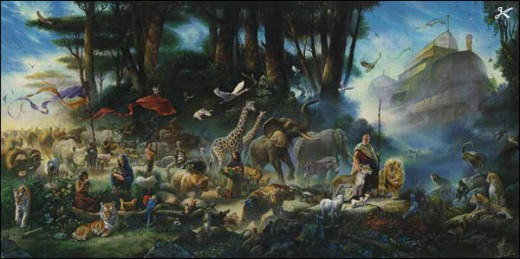
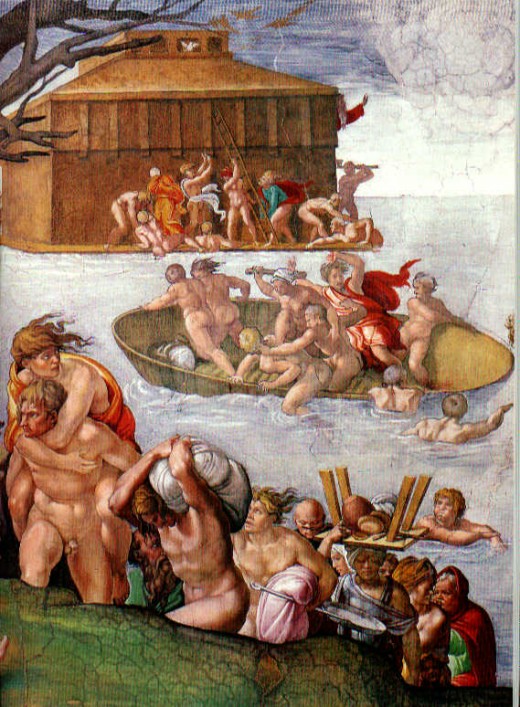
So what then can be drawn from the similarities in the stories? Further reading, from “Origin Myths” suggests that even though we hear of ubiquitous stories in ancient texts, it does not give us concrete evidence to believe these stories are factual representation. If this were true, future generations might believe Batman and Superman were the protectors of our society. This is sound logic, though it might lead one to make another just as faulty assumption: that because these stories are similar and ancient they indicate a similar trend of primitive intellect attempting to explain its own existence or simply entertain, again, much like our own comic books. This may be a safe assumption concerning the involvement of a God, or many gods depending on the version you ascribe to, but the flood story is not that much different from our own modern day theories (perhaps a good term for a myth in the "age of reason") of an ice age. Do we really know that what we call the ice age and what the ancients referred to as ‘the flood’ are two separate occurrences? Both involve some form of water covering the earth. Are these not two possible examples of what future civilizations might wonder which explanation came first about?
Considering all this, and doing it briefly as it appears this article is in need of truncating, I find myself asking the question: what function could the flood story (and that of the garden while we are at it) serve for the contemporary minds of the writers of Genesis and Gilgamesh and their audiences? I can only venture a highly uneducated guess: we as human beings have a drive (you can call it God given, but this is redundant if you believe in God) to understand where we come from and where we are going. It simply seems impossible for me to imagine human beings (even early on) as not telling and repeating stories that answered these questions while inspiring, awing, and serving as moral instruction at the same time. Do we not do the same thing in our own time? Are there no morals reinforced in Harry Potter? The answer is that of course we do, and of course there are.
Read Gilgamesh on your Kindle!
Haven't read the Bible yet? Order one today!
Interested in Linguistic Studies?
- Linguistic Origins & Etymology of the English Language: An Etymological Study of the Curious Eng
An etymological study of a word or term is one that traces its development and usage throughout the past. These studies are often interesting because language always develops and changes for reasons. This...
I think, when comparing the similarities of the two stories, that it is not an insignificant fact that both stories explain the flood as the result of the God(s) displeasure with man. If there is a God, that must be the point he wants us to get from this story. Gods disappointment with humanity is as ubiquitous throughout human history as a parent’s disappointment with their child. It would be redundant to ask which came first again. This would be like asking if the individual or if society came first. The answers to such questions are interesting but provide little insight.
Having sorted
through such observations, I cannot help but feel it obligatory to point out that
as we get hung up on the potential problems with these works and then feel the
need to discredit them, we miss the true value their similarity possess for us. We, in our bustle to justify ourselves in our
beliefs, so often pass up opportunities, such as this, to learn about
ourselves. We would do well to allow
these works to remind us how we have substituted our own beliefs, like
‘science’ or ‘evolution’, into the role that at a more "primitive" time we used "God" or "the Gods". I only make this
comparison because it seems to me that we place just as much faith in our supposedly
“superior” beliefs as they did in theirs, and we write our Academically Holy
Texts (Research Documentations, Theories, and Scientific Journals) with the
same seriousness and attention to detail as did ancient Jewish scribes who wrote the
book of Genesis. Are we so superior that
our human understanding can know Gilgamesh is a lie? Are we so superior that we know that if it
isn’t a lie it proves the Bible is one?
We don't even really know who killed JFK and that was less than 50 years ago, how can we be so certain about such ancient times? Do not miss the value of the opportunity these text present us today.
Read the Bible on Kindle!
In conclusion, it seems the similarities of these pieces have made me reflect much deeper upon my own ‘modern’ beliefs than either author(s) could have imagined or possibly have intended. This however, only came about because we investigated the texts without our preconceived notions about them. How could this beneficial and wise reflection on our modern beliefs have come about without an open investigation into the similarities? It is only when we accept that there is some unknown link between Genesis and Gilgamesh that we see the beauty of this possibility and can, as the old books tell us, see the world through the eyes of a child. This is why studying such texts should take such an important role in the study of much more than just Humanities. They present us with a mirror with which we can see ourselves from a new perspective.
The fact is, the answer to which came first, Gilgamesh or Genesis, is not as important as we might be tempted to think it is, despite what your professor, or your preacher, or anyone tells you. What is important is that both stories record in our oldest available documents of human history, the mass loss of human life that early humans interpreted as stemming from the arrogance, pride, and hurtful behavior of mankind to one another. When considering the lessons these stories present us about such behavior, perhaps we should take away from them that our focus should be on how to change who we are for the better, not on finding ways to justify ourselves in our beliefs.
Other Hubs in This Series
- Literary Origins: Virgil's Appropriation of the Homeric Epics
Given the place in western literature both Homer and Virgil occupy, that is the place of a forefather standing far before other great literary minds and achievements, the relationship between the two takes on... - Literary Origins: Autonomy in the Kalevala as a means to re-evaluate the tradition of the Western Pa
The tradition of oral poetry is shared amongst many ancient cultures, traditions and language families. While there are many similarities, both in the mechanics and the subject matter of these ancient texts,... - Literary Origins: Shakespeare's Creative Wordplay: A Linguistic Analysis of Hamlet's Catachreses.
The reputation of Hamlet as one of Shakespeares greatest plays often times overlooks one of the greatest achievements of the play. While many scholars acknowledge the play as the birth of the modern...






